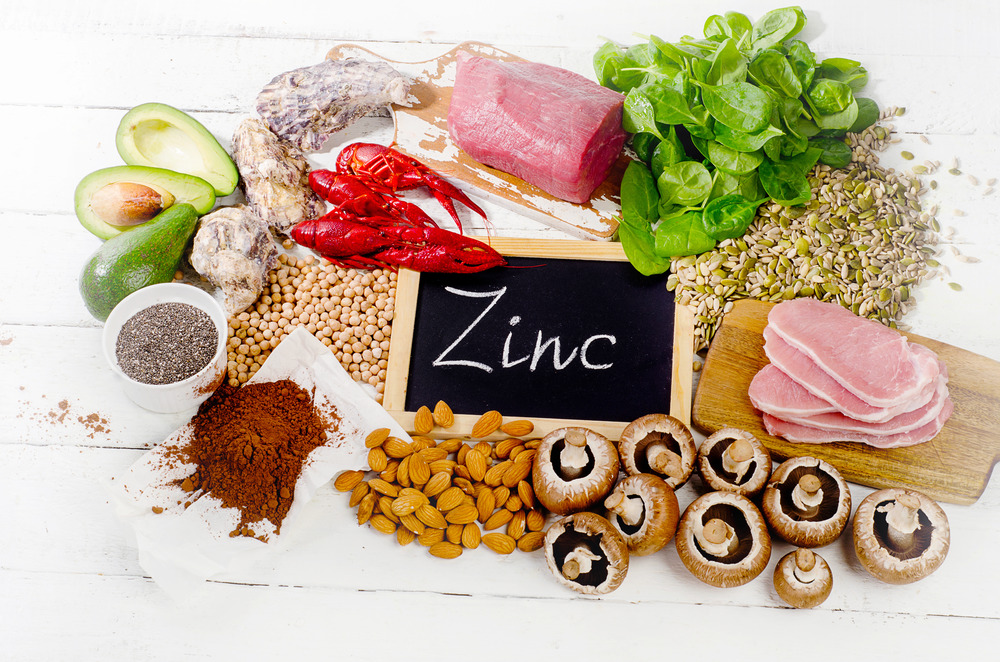As you most likely know by now, all fats are not created equal. Indeed, there are “good” fats and “bad” fats. The bad ones are best avoided or limited, but the good ones are extremely beneficial and an essential part of any healthy diet. Omega-3 fatty acids are one particularly important type of fat that offers significant health benefits. A form of polyunsaturated fat, omega-3s are classified as essential because you need them for health, and your body cannot produce them on its own. Two crucial omega-3s, EPA and DHA, are found in certain types of marine life, while ALA is found in nuts, seeds, and other plant sources. However, it’s a fourth type – ETA – that truly shines when it comes to reducing inflammation and other health benefits.
Explore Omega-3 Fatty Acids
- Where do omega-3 fatty acids originate?
- How do green-lipped mussels consume their omega-3 fatty acids?
- What are the 3 most important types of omega-3’s?
- The difference between green-lipped mussel and fish oil for omega-3’s
- Do omega-3 fatty acids help runners with joint pain and inflammation?
- Omega-3 fatty acids and asthma – does it make a difference?
- Omega-3 fatty acids used to treat lung disease
- Are omega-3 fatty acids good for the liver?
- How omega-3 fatty acids impact cognitive health
- Are Omega-3 fatty acids beneficial to horses?
- What’s the best omega-3 supplement?
Many people take fish oil supplements to ensure that they are getting plenty of these essential fatty acids, but green-lipped mussels are becoming known as a better source because of their rich ETA content – more on that in a minute. It’s important to know that omega-3 fatty acids are essential for the human body to function normally, and they offer some very desirable health benefits as well. For example, omega-3s may help lower elevated triglyceride levels, reduce pain and inflammation, help improve the symptoms of asthma, and protect against Alzheimer’s disease and dementia, to name just a few.
Where do omega-3 fatty acids originate and what are the best food sources?
Omega-3 fatty acids occur naturally in a wide variety of organisms throughout the world. However, the human body cannot produce them – in fact, no mammal can. Because we need to be healthy, we must look for outside sources of these fatty acids.
Beans, nuts, and seeds are excellent sources of omega-3s, which are the product of nutrients absorbed from the earth. Another excellent example of omega-3 sources are flaxseeds, not just a good source of fatty acids but an extremely healthy whole food overall. Chia seeds and hemp seeds also make the list.
You can also get your omega-3s from soybeans, kidney beans, Great Northern beans, and navy beans. Because soybeans contain a good amount of omega-3s, you can also get a little from foods such as tofu. Just make sure it’s organic and non-GMO! This can be hard to find in tofu as a large percentage of soy is GMO, but the rewards are worth it.
Some of the best food sources for omega-3 include:
- Mackerel. Mackerel is a small, fatty fish that you can eat smoked; many people enjoy it for breakfast. Along with omega-3s, it is also high in B vitamins and selenium.
- Salmon. This is one of the most nutritious and most popular types of fish on the market. It also contains plenty of protein, potassium, magnesium, B vitamins, and selenium.
- Oysters. You can often find oysters on restaurant menus as appetizers or snacks. Unlike most seafood omega-3 sources, oysters contain all three major classes of omega-3s: ALA, EPA, and DHA.
- Seabass. This popular Japanese fish also offers a powerful dose of protein and selenium.
- Shrimp. Around the globe, people enjoy shrimp as an appetizer or a meal component. Shrimp is a tasty and versatile food that’s also rich in protein and potassium.
- Trout. Rainbow trout are one of the healthiest and most popular types of fish you can buy. In addition to mega-3s, trout also boasts lots of protein, vitamin D, and potassium.
However, the easiest way to get all the omega-3s your body needs for optimal health is through a supplement such as GLX3. That’s because getting an optimal amount from your diet alone can be a challenge, especially in today’s busy world, and a supplement can offer a concentrated dose of omega-3s with minimal effort. The omega-3s in GLX3 come from green-lipped mussels, one of the most potent sources in the world.
How do green-lipped mussels consume their omega-3 fatty acids?
What makes green-lipped mussels such a potent source of omega-3s? Fish and shellfish are remarkable sources of these compounds – but they can’t make them on their own. Therefore, just like humans, they get them from what they eat – in this case, algae.
How do green-lipped mussels consume algae? It’s a little different from the way fish eat. Fish typically eat other, smaller fish, which means that they consume whatever the smaller fish have eaten, benefitting (or not benefitting!) from those nutrients. Green-lipped mussels, on the other hand, get their nutrients straight from the source. Mussels have a unique filtering system that traps tiny particles of algae and natural bacteria from the ocean water without disturbing the environment or being exposed to harmful particles or germs.
Algae itself is an excellent source of omega-3s – but it isn’t something many people relish the thought of eating once, let alone regularly. When mussels and other marine life eat algae, they absorb its EPA and DHA and, in turn, absorb the healing powers that these omega-3s contain. As mussels age, they continually consume more and more omega-3s, making mussels an extremely healthy food for humans to consume.
Yes, you can get omega-3s from other foods, such as soybeans, nuts, and seeds. However, these foods don’t contain all three omega-3 varieties required for maximum health benefits. Algae does – and along with a healthy diet and active lifestyle, can help ensure your optimal full-body health as well as minimizing inflammation and pain.
What are the 3 most important types of omega-3’s?
While there are more known types of omega-3 fatty acids, the three ones thought to be the most important are EPA, DHA, ALA, and ETA. While EPA, and DHA, and ETA are mainly found in fatty fish and other animal foods, ALA is generally found in plants. Let’s take a closer look at each of these three essential omega-3s.
ALA (alpha-linolenic acid)
ALA is the most common omega-3 fatty acid and found mainly in plant foods. That means that your body must convert it to DHA or EPA before using it for a purpose other than energy. Some research cites a lower risk of heart disease in people who consume sufficient ALA. It is plentiful in spinach, kale, soybeans, walnuts, and many other plant foods. It is also found (to a lesser extent) in some animal fats.
EPA (eicosapentaenoic acid)
The human body uses EPA to produce special signaling molecules that help reduce inflammation and play other important physiological roles. Like DHA, EPA may help reduce symptoms of depression; EPA may also help decrease the number of hot flashes experienced by menopausal women. EPA is found in the highest concentrations in foods such as salmon, shrimp, herring, and sturgeon.
DHA (docosahexaenoic acid)
DHA is a structural component of the retinas of your eyes as well as your skin. It is vital for brain development in children and brain function in both children and adults. A deficiency of DHA can lead to issues such as learning disabilities, ADHD, or Alzheimer’s disease in later life. It may have a positive impact on arthritis, type 2 diabetes, high blood pressure, and other conditions.
ETA (eicosatetraenoic acid)
ETA is truly the “secret weapon” in green-lipped mussel oil supplements such as GLX3. While all omega-3 fatty acids can lower inflammation in the body by inhibiting the enzymes that produce inflammatory compounds, ETA takes it a step further. ETA actually works at the gene level to minimize the production of these inflammatory enzymes in the first place. This particular omega-3 fatty acid also reduces the formation of a different type of fatty acid, known as arachidonic acid, which can also produce inflammatory compounds. Furthermore, your body contains a particular enzyme called D5D that can use ETA to produce EPA (the omega-3 fatty acid found in fish oil).
The difference between green-lipped mussel and fish oil for omega-3’s
If mussels and fish both consume algae – albeit in different ways – then why does it matter which one is the origin of your omega-3 supplement? It’s true that when you take a traditional fish oil supplement, you are getting omega-3 fatty acids, so a fish oil supplement is certainly better than none at all. However, you are missing out on the protein-sourced oil from New Zealand’s pristine coastal waters, free from human-made and natural pollutants.
One reason green-lipped mussels are the superior choice to fish oil is that larger fish tend to cover a lot more ground in the ocean, giving them much greater odds of contacting mercury. Fish that contain much mercury could do more harm than good when you consume them over time. Also, besides the potential for mercury contamination, certain parts of the ocean are polluted with microplastics and other harmful substances best kept out of the human body.
However, the waters on the eastern coast of New Zealand are some of the cleanest waters in the entire world, and this is where green-lipped mussels thrive. When you choose a green-lipped mussel oil such as GLX3, you can be confident that you aren’t getting mercury or any of the other potential harms associated with farm-raised fish. That is, assuming your green-lipped mussel oil supplement is all-natural, without fillers or additives – like GLX3, which contains only New Zealand green-lipped mussel oil, New Zealand olive oil, and vitamin E oil, each of which offers unique health benefits and serves a vital role in our supplements.
Another way in which green-lipped mussel oil differs from regular fish oil is its superior bioavailability. When you take fish oil, your body must break it down using acids and enzymes that convert it into a bioavailable form, or a form that your body can use. The problem is that the human body is not very efficient at this conversion and generally manages to make only about 10% of the fatty acids available for use. However, the essential fatty acids in GLX3 are immediately bioavailable – no conversion needed. That means that your body benefits from the full dose of omega-3s, which makes GLX3 many times more potent than traditional fish oil supplements.
Do omega-3 fatty acids help runners with joint pain and inflammation?
The body experiences a tremendous amount of stress during a strenuous physical workout. It’s good stress in that it helps build fitness and strength. The recovery period after any workout is essential to allow the body to adapt to the stress of the workout and incorporate the work done during exercise. Without adequate recovery, though, there is a higher chance of injury.
All of that is to say that there’s good news for runners who already use GLX3: the omega-3 fatty acids it contains can help build and repair your muscles and help your body recover faster after you run. What’s more, it also appears that supplementing your diet with omega-3s can even help minimize muscle loss during short periods of disuse. Consuming lots of omega-3s appears to offer numerous benefits for runners, including:
Less inflammation
As you know, omega-3s have powerful anti-inflammatory properties. The omega-3s found in GLX3 – derived from green-lipped mussels – are anti-inflammatory powerhouses, reducing joint pain and helping users stay more mobile.
Better performance
As mentioned above, omega-3s can help your body in many ways, including recovery, muscle synthesis, and reduced inflammation and pain – all of which help you perform optimally as an athlete.
More muscle mass
Omega-3 supplements are a great compliment to regular exercise when it comes to maximizing lean muscle mass. The body’s response to amino acids and insulin increases, as does muscle protein concentration and muscle cell size in healthy adults.
Less fat
When combined with regular physical activity, GLX3 supplements can enhance body composition, specifically by aiding with fat loss. This benefit is likely due to the cortisol-reducing and blood-sugar-regulating effects of our supplements as well as improvements in liver function.
Omega-3 fatty acids and asthma – does it make a difference?
The symptoms of an asthma attack are not pleasant, as anyone who has ever experienced this problem knows well. A person having an asthma attack may experience shortness of breath, pain or tightness in the chest, coughing or wheezing, and symptoms that are made worse by a respiratory illness such as a cold or the flu. During an asthma attack, the bronchial tubes become inflamed, narrowing them and making it harder for air to pass through. This inflammation, like all inflammation, may be improved by the consumption of adequate omega-3 fatty acids. As it’s more of an inflammation issue than a breathing issue, its asthma symptoms may be reduced significantly by omega-3s.
Recently, Johns Hopkins University School of Medicine conducted a six-month study in which they examined whether fatty acids affected the symptoms of children ages five to 12 with asthma. The study revealed a significant reduction in daytime asthma symptoms in kids who took omega-3 supplements. Furthermore, researchers also determined that not only did omega-3s help, but omega-6s made things worse.
What do these findings mean for adults? Well, even though the researchers studied children in this particular study, their inflammatory situations are consistent with those experienced by many adults. It’s safe to conclude that being mindful of your nutrient intake – including omega-3s – is a great way to keep your entire body healthy, including your airways, no matter your age.
Omega-3 fatty acids used to treat lung disease
There’s exciting news for people who use omega-3 supplements. Along with all their other health benefits, it’s now understood that omega-3 supplements may also help enhance lung health.
For patients with inflammatory lung conditions, such as COPD, the focus in treatment has traditionally been to simply remove whatever was believed to be causing the inflammation in the first place. This approach did help prevent many patients from experiencing worsening symptoms. However, in patients who required an ongoing treatment plan, there was still a missing piece.
Omega-3 fatty acids may very well be that missing piece. It appears that omega-3s provide the precursors that cells need to shut down excess inflammation. Furthermore, this treatment does not preclude you from having other treatments concurrently, such as surgery. If you are or have been a smoker or are otherwise concerned about the health of your lungs, it’s advisable to talk with your doctor about whether omega-3 supplementation may be right for you. It’s great news that something this simple might do something as important as relieving inflammation throughout your entire body – not just in your joints.
Are omega-3 fatty acids good for the liver?
When you hear the term “liver disease,” you may automatically think of alcoholism, and the damage excess alcohol can cause to the body. However, there is another type of liver disease known as non-alcoholic fatty liver disease (NAFLD), that affects over 100 million individuals in the US alone. That number translates to roughly one in every four people having NAFLD.
When a person drinks heavily for a long time, the liver is likely to become inflamed, and its cells fattier. Eventually, the inflammation can become so severe that it affects the function of the liver. However, this condition can also affect people who aren’t heavy drinkers. The leading cause of NAFLD in a non-drinker is obesity. It makes sense, of course, that when there is excess fat throughout the body, there may also be excess fat in the liver. People with type-2 diabetes have the highest risk.
If you have been diagnosed with NAFLD or even if you would just like to prevent it before it occurs, then there are several proactive steps you can take. Above all, follow any instructions that your doctor gives you. The next thing to look at is your diet. If you aren’t getting adequate omega-3 fatty acids through foods such as spinach, salmon, and olive oil, then you can up your intake by adding a supplement such as GLX3. Omega-3 fatty acids are known to reduce inflammation in the liver, helping it work better.
Along with your omega-3 supplement, make sure to adhere to a healthy diet and an active lifestyle to keep yourself as healthy as possible. In general, 30 minutes of exercise a day can help improve your blood circulation and help the liver detoxify. By following these guidelines, you can decrease the swelling and pain associated with NAFLD and even prevent long-term damage (cirrhosis).
How omega-3 fatty acids impact cognitive health
It appears that omega-3 fatty acids do more than just protect the heart and joints from the damaging effects of inflammation. There is also emerging research that suggests that omega-3s could benefit cognitive health and cognitive functioning as well. These compounds may play a significant role in mental health challenges and how the brain processes information. Omega-3s are also important to the structure of all cells and help form the cell membrane while supporting communication between cells. This support leads to faster thought processing and more efficient production of dopamine, serotonin, and other vital neurochemicals.
What all the research says, in a nutshell, is that not getting enough omega-3s in your diet can keep you from operating at maximum capacity. Supplementing your diet with omega-3s, on the other hand, can help ensure that your cells receive everything they need to support optimal brain function. Indeed, it may even help protect against dementia and age-related cognitive impairment as you grow older. Consumption of fish and fish oil supplements has been studied for a link to Alzheimer’s prevention, and results have been mixed but promising. This study, for example, concluded that consuming one meal per week of seafood was directly associated with a decline in multiple cognitive functions. Here are a few other studies showing a link between omega-3s and cognitive health:
Improved Motor Function
This study showed a link between increased consumption of DHA by pregnant mothers and better motor function in her offspring later in life.
Decreased Symptoms of Depression
This study determined that EPA intake was associated with lower severity of depressive symptoms in older adults.
Help for PTSD
This study concluded that omega-3 supplementation was an effective way to help people suffering from post-traumatic stress disorder.
The GLX3 Advantage
GLX3 contains green-lipped mussel oil and New Zealand Olive Oil, which play a critical role in maintaining brain health as we age.
Are Omega-3 Fatty Acids Beneficial to Horses?
Omega-3 fatty acids may not just be beneficial for humans. It turns out that there may be significant benefits for horses as well. There is evidence that omega-3 fatty acids may play an important role in improving the symptoms of horses with asthma, as well as joint inflammation and pain. Some of the potential benefits horses can experience when receiving omega-3 supplementation include:
Less joint pain and inflammation
Horses that are free of pain can exercise more and for longer periods. Just as with humans, horses can start to slow down as they age due to joint problems. Omega-3 supplements can help.
Lower heart rate
Inflammation can affect heart rate and blood circulation. When a horse has no excess inflammation in their body, their heart can function better, their blood can flow more freely, and they feel better overall and may even live longer.
Better breeding
Omega-3 fatty acids could potentially increase a breeding animal’s sperm count. That means that a stallion that is receiving omega-3 supplementation in their diet may be more likely to breed successfully.
A stronger immune system
A robust immune system is essential to a horse because it means that they may be more able to resist illness or, if it does occur, fight it off. Because horses don’t generally eat meat, most of the omega-3 fatty acids in their diets come from plant sources. The horse must convert these plant-derived omega-3s to EPA and DHA after ingestion because these sources provide only ALA naturally. However, plankton and algae do provide EPA and DHA, and these substances are commonly eaten by marine life – including green-lipped mussels. That means that the most efficient and effective source of omega-3s for horses are supplements derived from marine life.
Omega-3 is great for dogs and other pets, too!
What’s The Best Omega-3 Supplement?
It’s clear that getting enough omega-3 fatty acids in your diet is vital for your optimal health. However, eating a perfect diet every day is virtually impossible for most people. That’s where supplements come in. While many people reach for regular fish oil supplements automatically, you might want to rethink the source of your omega-3s. Green-lipped mussel oil is a purer and more potent form of these essential fatty acids. The GLX3 brand means no fillers, no additives, and no harmful chemicals – only three all-natural, wholesome, healthy ingredients: New Zealand green-lipped mussel oil, New Zealand olive oil, and vitamin E. That’s it.
If you like the idea of taking the most effective and potent supplement possible for your heart health, brain function, joint health and strength, immune system function, and overall well-being, try GLX3 today. Try it for one month or go all-in for three or six months and save money – either way, we’re confident that you’ll feel the benefits of GLX3 and back it with a money-back guarantee.




















